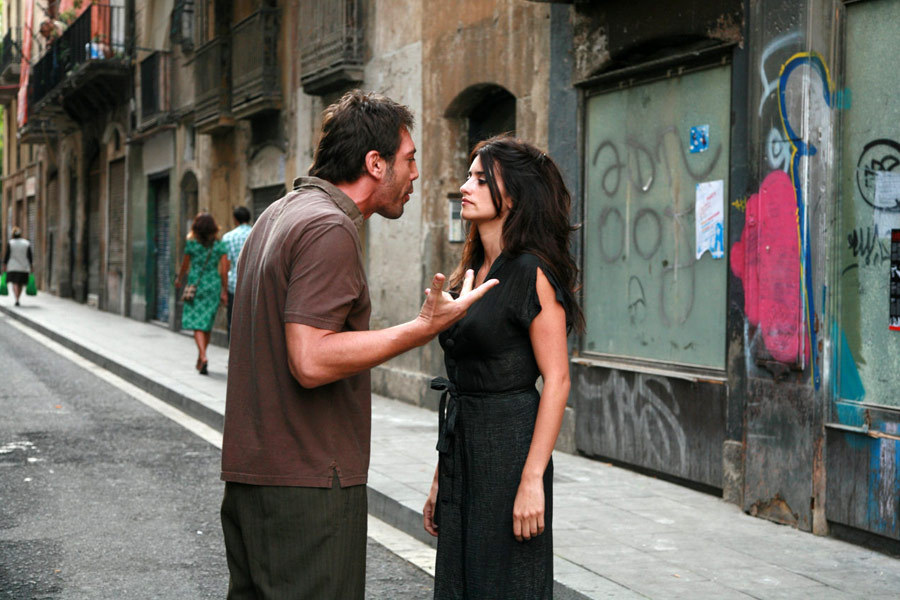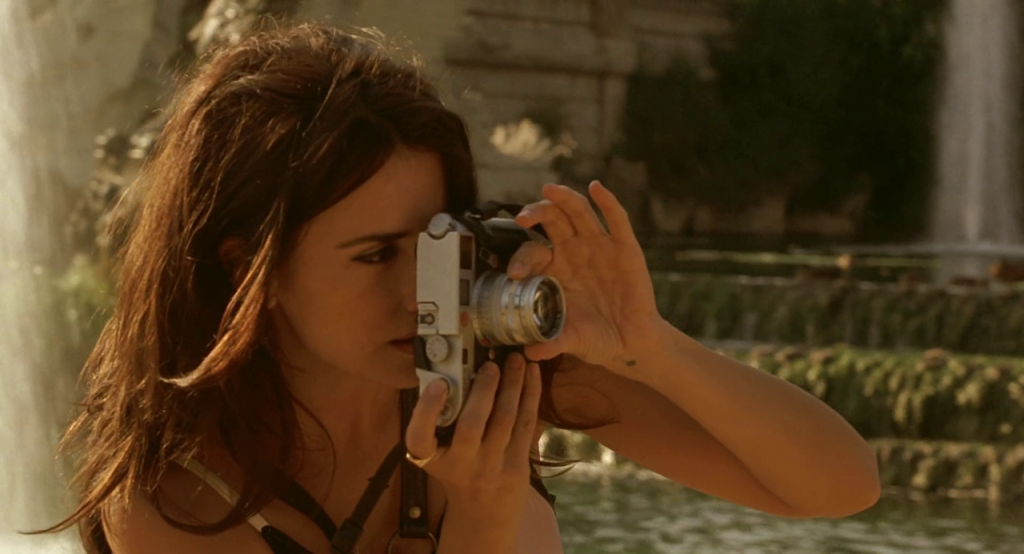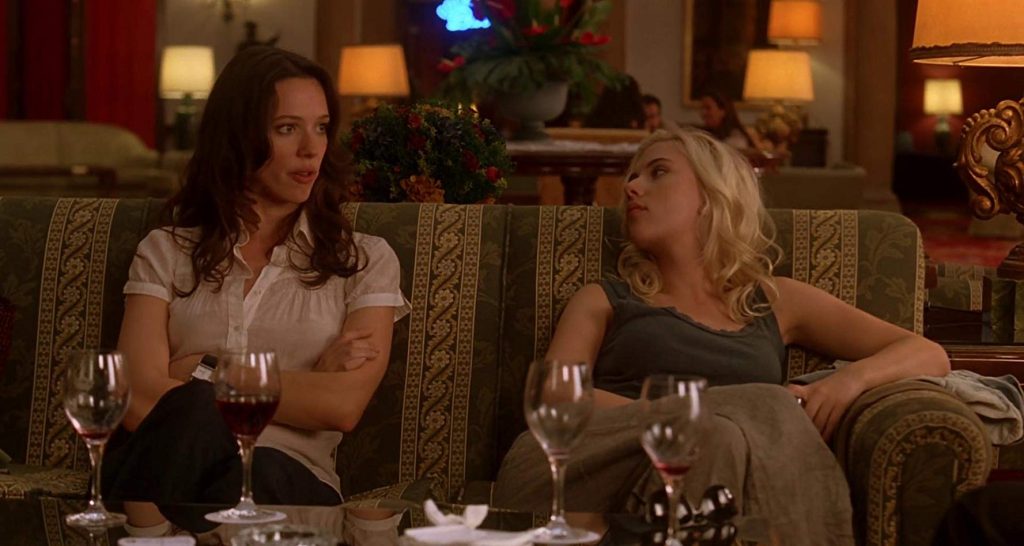Vicky Cristina Barcelona
Three different women. Three different approaches to love. One man.
Christina dreams of love that will consume her, tear her away from boring reality. She wants to dive right in the middle of it. Vicky on the other hand, approaches love timidly, dipping just her toes in the sea. Reluctant with the idea of following where her emotions could take her, heart locked in a box deep in the prison of her logic. But when desire creeps in, logic disappears. She finds herself head deep in a forbidden desire she interprets as love. And Christina finds herself in a love triangle with the madwoman unleashed, María Elena. Or perhaps a love square, collapsing under its own desire.
When you look into these characters -especially Vicky, Cristina and María- it’s merely showing us their surface. It’s so obvious that a male director wrote and directed this movie: They’re not roundly written, that’s for sure. They’re archetypes of love, desire, lust and logic. Vicky is the angel; Cristina is the muse and María Elena is the madwoman in the attic, unleashed. And Juan Antonio is the catalyst. Seducing different archetypes of woman and bending their logic into lust. And when the fire of lust burns out, the illusion of love leaves its ashes on the floor: a mess you don’t want to clean up.
Although, flat characters can make a movie look hollow and ornamental, the idea of this movie was to show different approaches to desire. Or how lust and desire are interpreted differently by different types of people. So, although it’s problematic in the sense of storytelling, it ends up serving the idea it set out to prove: that desire is never neat, never whole. And maybe that’s what makes it captivating and destructive.



“I was in love with the most incredible woman then in the end she put a knife into me”
María Elena and Juan Antonio’s relationship is destructive, self-harming, hating, lusting, bruising, fighting, yelling, biting, consuming… However the thing that makes this dynamic all fire and no smoke is María Elena’s archetype: the madwoman. Except this time she’s not locked behind locked doors like Bertha Mason in Jane Eyre: She’s a catalyzer in the plot; she’s alive, fuming and destroying. However her real problem is still sweet under a rug, sugarcoated by lust and desire. What she needs is no ménage a trois, but a mirror. For her, love is just a way to muffle the voices inside her head. She tries to silence the cacophony within her mind by screaming louder into Juan Antonio’s face: Or by putting a knife in him, or by shooting at him with a gun.
If we have to put these three archetypal women on a spectrum: Cristina -the muse- would be right in the middle of Vicky and María Elena. Like María Elena, she also wants give into her desires and lose herself in the sea of lust and love: She wants something different, something more… So she throws herself in headfirst. But like Vicky, in the end the madness her throuple dynamic entails makes her logic creeps in and sweeps her away back to reality.
Vicky is seduced outside her logic of love. At first she believes love is tamed, rational. But the moment she bites into the apple of lust, restraint collapses. The angel archetype is tempted to give in to sin. After all, lust doesn’t wait. It seduces and slaps you out of reality in an instant. So the safe relationship she has with her fiancé who later becomes her husband cannot come near the lust she feels for Juan. Juan’s erotically charged attitude transforms her place on the spectrum of madness. Starting off as the timid one, still scared she tries to give herself in to thrill of lust and desire. But the madwoman attacks, she gets shot on her hand by María Elena’s gun. And the self-destructive force of lust scares her: Snapping herself back to reality with the scarring of the bullet left on her hand.
The angel is put to the stake, the muse runs away, the madwoman devours the very vice that keeps her alive. Vicky, Cristina, Barcelona will leave you questioning the reality of love. Can love exist? Or is it just an excuse for other emotions like lust, desire and ire? In the end, the only certainty is that desire burns longer than love ever could. Maybe love was never the point, only the chaos it excuses.
As this crossroads of love comes to breaking point, we invite you to our playlist curated by the movie: